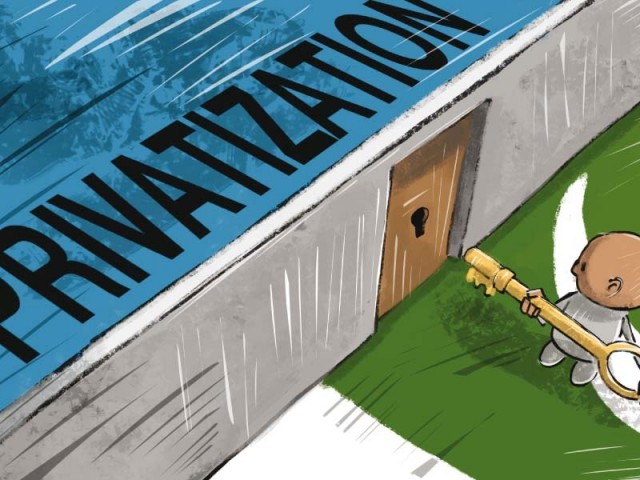
Address of Andros Kyprianou, General Secretary of the C.C. of AKEL, to the Conference organized by SIDIKEK Trade Unions on “Working people and society can prevent the selling off of the Semi-state organizations”
15th May 2014, PEO Conference Hall, Nicosia
 On behalf of the C.C. of AKEL I welcome today’s Conference organized by the SIDIKEK Trade Union affiliated to the Pancyprian Federation of Labour PEO entitled “Working people and society can prevent the selling off of the Semi-state organizations.” The title of your Conference captures the whole meaning of the issue. The Public Utility Organizations belong to society as a whole and are public property. They also belong to the workers who have devoted their forces so that these Organizations could thrive and be profitable today. The Troika and the Government of Anastasiades and the Democratic Rally DISY party want to sell off this public and social wealth at a cheap price.
On behalf of the C.C. of AKEL I welcome today’s Conference organized by the SIDIKEK Trade Union affiliated to the Pancyprian Federation of Labour PEO entitled “Working people and society can prevent the selling off of the Semi-state organizations.” The title of your Conference captures the whole meaning of the issue. The Public Utility Organizations belong to society as a whole and are public property. They also belong to the workers who have devoted their forces so that these Organizations could thrive and be profitable today. The Troika and the Government of Anastasiades and the Democratic Rally DISY party want to sell off this public and social wealth at a cheap price.
We are not discussing anything new today. The discussion on “privatizations”, “share issue privatization” and “denationalization” in various European countries goes back to the mid-1990’s. At the end of the same decade, DISY tried to raise the issue of privatization in Cyprus too. In January 1999, even before the market in telecommunications had been “liberalized” and long before Cyprus joined the European Union, the Council of Ministers chaired by the late President Clerides (Note: former President of the Republic 1993-2003 and founder and then President of DISY) decided to proceed to the “share issue privatization” of the Cyprus Telecommunications Authority. This would have signaled the beginning of privatizations.
They attempted to do so when there was no Troika or the Memorandum in existence. This is the most convincing proof that it is not the conditions that, as it is argued, which are today forcing President Anastasiades and the DISY party to rush to privatize everything; neither the coarse lie that they are forced to do so because of the previous government’s policy. The policy of privatizations is their conviction. It reflects the blind adherence to their obsessions.
Why do we talk about obsessions? We do so because while today in various European countries re-nationalization is under discussion and in several countries they are indeed moving ahead on this path, in Cyprus they are talking about privatization. They are pushing for privatizations because they had decided together with their ideological counterparts to press ahead with them; because although today it has now been proven that privatizations have been tested in several countries and have failed, in Cyprus the Government of Anastasiades – DISY persists in their promotion.
In Germany, over half of the local centres providing electricity have renationalized, while it is estimated that two thirds of these companies will pass into public ownership by 2016. Finland was forced, because of the high cost to the people, to buy back 53% of the national energy network, while Lithuania renationalized its entire energy system.
In Cyprus, the three big Semi-governmental organizations, namely the Cyprus Telecommunications Authority CYTA, the Cyprus Electricity Authority EAC and the Cyprus Ports Authority, are worth approximately 4.5 billion Euros. The Government’s plan is to sell them at the degrading price of 1.4 billion Euros. This is the most perceptible evidence that this is indeed all about a sellout.
The last eight years, CYTA, for example, has boosted the state budget with 650 million Euros from its surpluses. It also provides support to sports, cultural and other social activities. It provides various services at a very good standard, while maintaining thousands of jobs with good terms of employment, supporting the economy and enhancing development. It has proceeded to make large investments, the positive results of which Cypriot society will reap in the coming decades. The two other big Semi-state organizations have also recorded similar results, actions and corresponding performances.
With privatization, money will end up in the pockets of private individuals. This is the most tangible evidence that privatization are imposed because this is what the interests of the privileged few dictate.
“Privatizations will benefit society” is their reply “because there will be competition and prices will fall, while the services provided will be better.” Competition already exists in the field of telecommunications. And in the other areas there is a possibility for competitors to enter. So, why then should CYTA, EAC and the Ports Authority be privatized?
The reality other countries experienced and are experiencing totally refutes the need for privatizations. In Bulgaria the denationalization of electricity had the effect of increasing the price of electricity by 140%. This led the people to take to the streets in mass protests that forced the resignation of the Government. In Britain, all the big companies providing electricity imposed simultaneously increases three times that of the increase in inflation. Indeed, they were applied even though the price increases were deemed unacceptable by the Regulator.
However there is also something else that should be pointed out. Why didn’t Anastasiades and DISY state all these positions before the Presidential elections? If they really believed that privatizations would be beneficial for Cyprus, working people and society in general why didn’t they boldly express their views before seeking the vote of the people for the Presidency of the Republic? Why didn’t they then not only reveal to the people their realintentions, but were making pledges – both verbal and in writing – that they will not proceed to any privatizations? Before the presidential election, in December 2012 Mr. Anastasiades had made a very correct statement. He literally said the following: “It is not our intention to privatize or issues shares of any Semi-state organization. The main priority is the modernization of the legal framework to make the contribution of Semi-state organizations more flexible and substantial in the interests of the country.” The only thing is that he did not mean it, as it seems.
Today, when AKEL dares to defy the ruling policies and is resisting privatizations both inside and outside the House of Representatives, calling essentially on the Anastasiades – DISY Government merely to remain consistent to the election commitments they had made to the people, it is accused of “populism” and that AKEL wants to lead the country to bankruptcy. The Anastasiades – DISY Government was talking about blackmail also being exerted by working people’s strikes and mobilizations. However, they themselves had no trouble being blackmailed by the Troika and subsequently blackmailing in turn the House of Representatives to vote for the Bill for privatizations.
On such serious issues, we all have to be specific and if we are bold enough to commit ourselves on substantive issues.
Do Anastasiades and DISY President Neophytou pledge that in the future the greed of the private monopolies and oligopolies that would control CYTA, EAC and the Ports Authority will not exploit and squeeze the economy, taxpayers, consumers and workers?
Do they pledge that there will not arise any issue of national security if the ports and telecommunications in a semi-occupied country are handed over to two or three people?
Do they undertake the pledge that there will not be any mass layoffs?
In France, France Telecom since being privatized has gradually sacked around 53, 000 workers which is equivalent to 30% of its labour force. In the United States, the one-time giant “Enron”, the company which was once regarded as a model, collapsed one morning leaving more than 4,000 workers without a job and on the street.
Noting all of these facts, I accept that there should be a modernization of the legislative framework and in the way the Board members of the Public Utilities organizations are appointed; that they should be more transparency in their processes and more effective control. That is one thing, but their sell-out and privatization is something completely different.
All these and many more others are the reasons why working people and society must prevent the selling off of Semi-state organizations. The way and means of preventing their sell-out is through the forging a powerful front against privatization, unity of workers and a strong resistance from the political forces both inside and outside the House of Representatives. I want to assure you that AKEL will be the largest component of this struggle.




